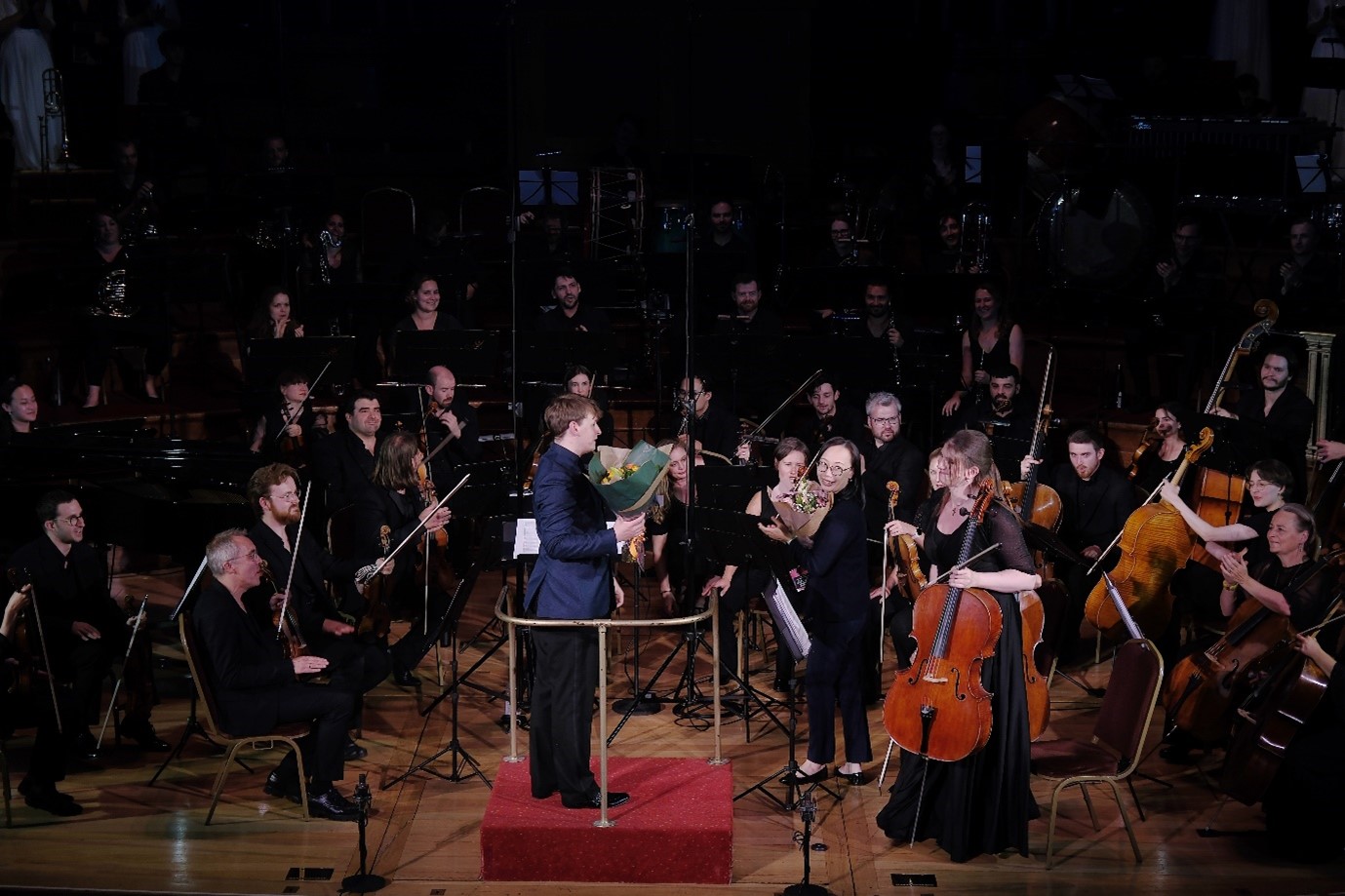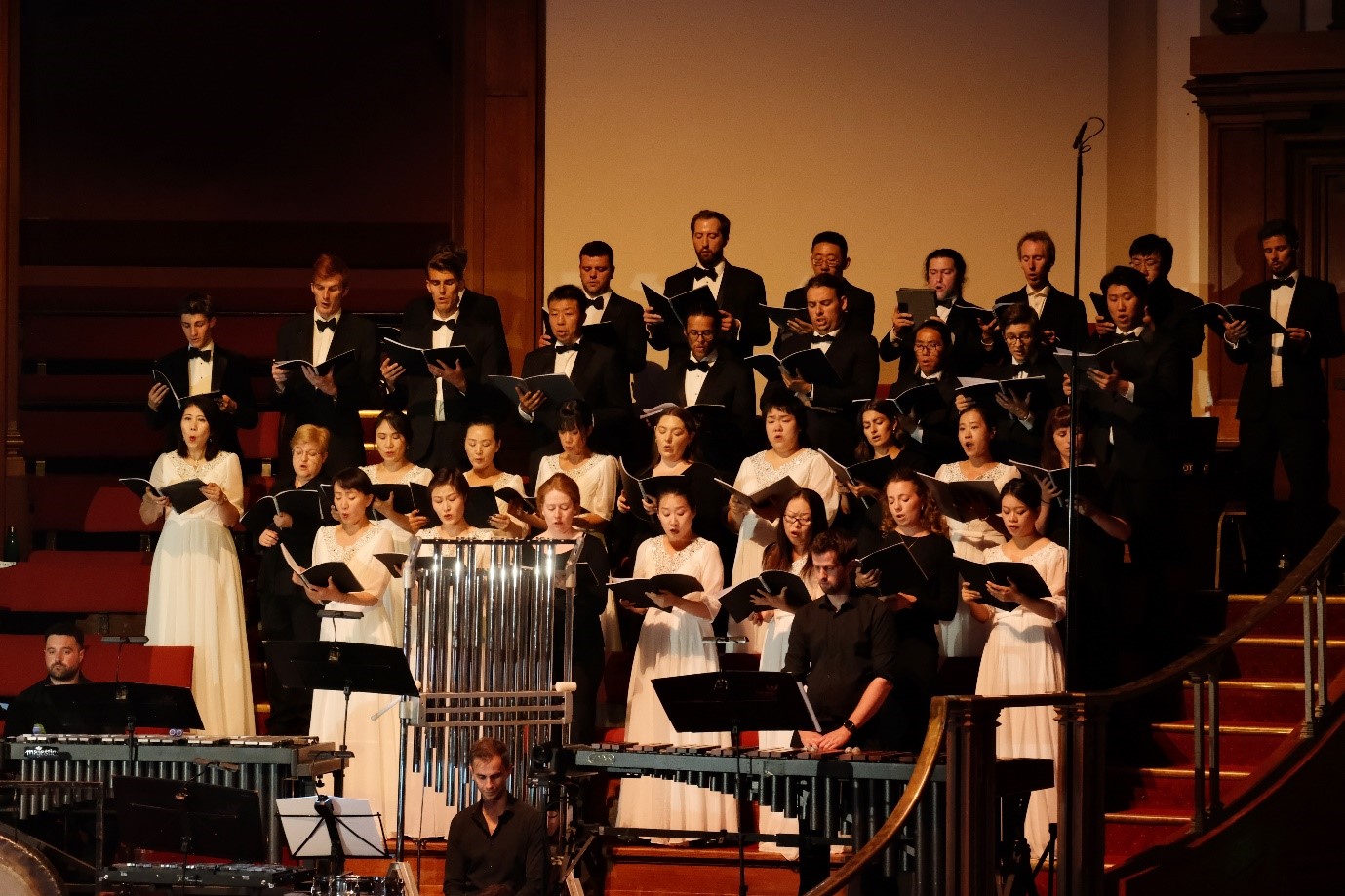Review: Symphony Kukai’s European premiere
Symphony Kukai’s European Premiere introduces an East Asian Buddhist monk to the UK through music.
Inside Central Hall Westminster, the orchestra and choir sit in the shadow of a great organ, ready to play the European premiere of Symphony Kukai to a packed crowd of almost 1,800 people.
The beautiful Central Hall Westminster, by the Houses of Parliament and Westminster Abbey, was the perfect place for the European premiere of Symphony Kukai, which shared the history and legacy of the Japanese Buddhist monk Kukai.
He traveled from Japan to China over 1,000 years ago to study Buddhist teachings. Returning to Japan, he became a key figure in Buddhism in the country remembered to this day. Symphony Kukai takes his story and transfers it to classical music. It celebrates his esoteric Buddhist lineage and serves as a bridge to bring the audience back to 1250 years ago to reconnect with Master Kukai’s spirit.
It was first performed last year in China and Japan. On Saturday, August 17th, London was the site of its European premiere.
The symphony is a joint creation between Beijing Tianguzhiyin Culture Media Co. and the famous Chinese composer Zou Ye.
In London, Derrick Morgan conducted the Orpheus Sinfonia Symphony Orchestra, the Central Conservatory of Music Choir, the Scherzo Ensemble, and the London Chinese Philharmonic Orchestra.
The traditional orchestra along with a choir singing in Mandarin Chinese created an interesting blend of East and West.

From the opening, you are enveloped by sound. The first section alternates, from the thundering drums percussion to gentle violin strums. The music alternates you between peace and tension.
The lyrics performed speak of Kukai’s teachings and journey. Many of the words come directly from his writing.
Behind the performers, a screen projects the lyrics in English and Mandarin. The use of extensive Buddhist terms, however, makes many lyrics difficult to understand even translated.
This is irrelevant. This music isn’t meant to be listened to, processed, translated, or dissected; it’s meant to be felt. As the symphony builds to its final crescendo, it does that superbly.
As he carries his bags off the stage following the performance Daniil, who played double bass in the orchestra, shared his thoughts: “It was quite the project to take part in, so we’re very lucky.”
“I enjoyed it. Playing this sort of music, with the composer present is wonderful”.
Speaking before the performance Mr Yue, Tianguzhiyin Culture Media Co. Ltd. Representative, said he first heard of Kukai over 20 years ago. His story struck a nerve and inspired Mr Yue to learn more and more about Kukai before sharing it with others.

The symphony is split into six parts, telling the story of Kukai’s journey from Japan to China, his relationship with his Master Huiguo, and his return to Japan to spread his message. A message of Buddhist teachings including wisdom, compassion, and alleviating suffering.
To Mr Yue, Kukai “had gone through lots of hardships, but he accomplished a lot”. This message of perseverance, and Kukai’s belief in compassion, are ideals that Mr Yue believes the world needs more of.
These are the values he hopes viewers of the symphony take away with them, though he acknowledges everyone will “have a different takeaway from the piece”. All he wants is that “everyone will listen with their heart.”
Symphony Kukai is scheduled to be performed next year in New Zealand and Japan.
